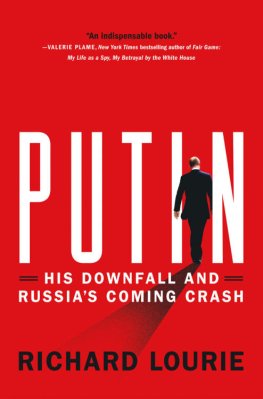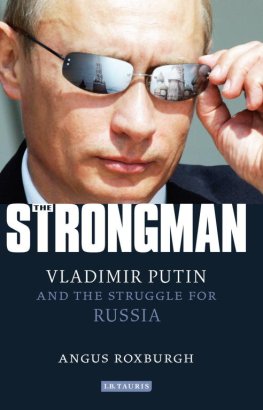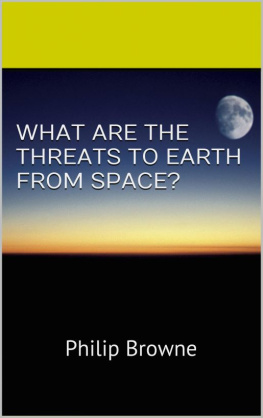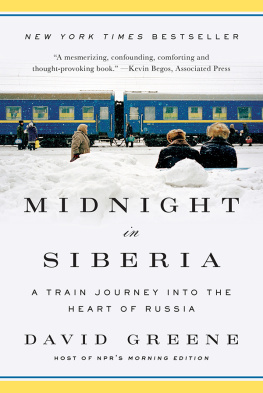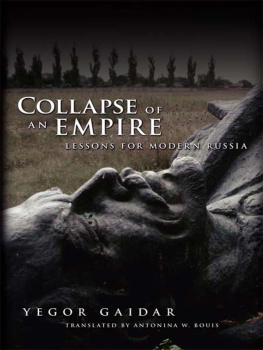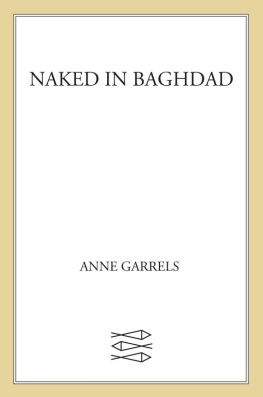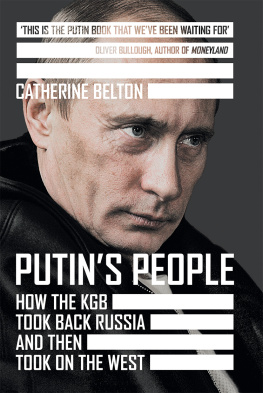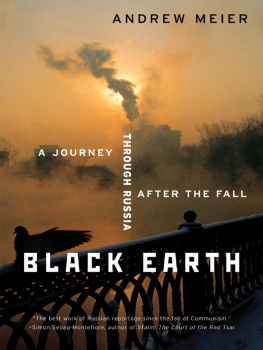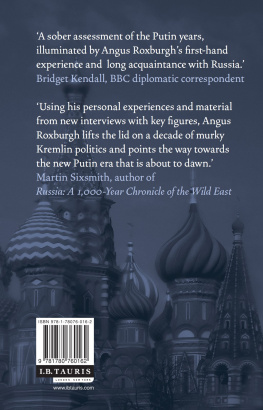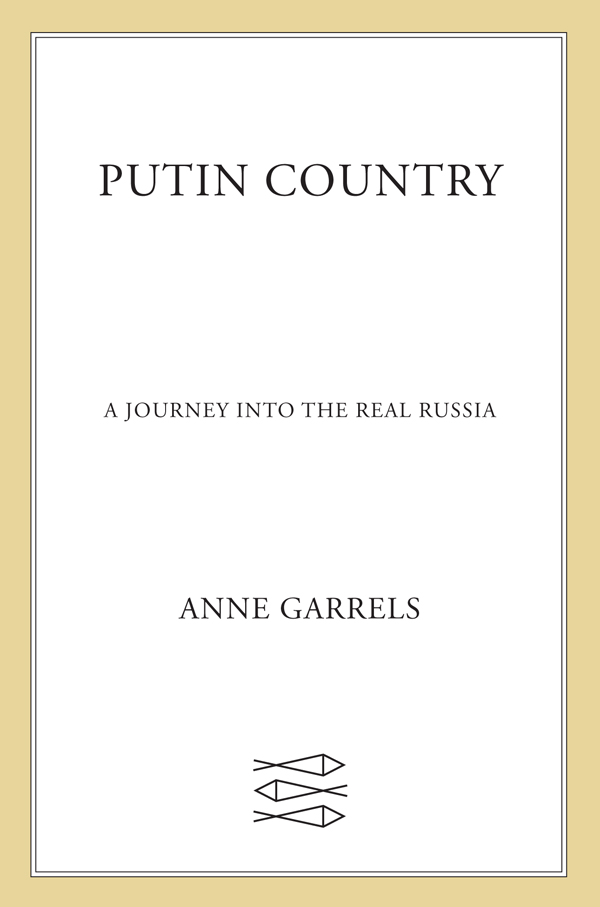Contents
Guide
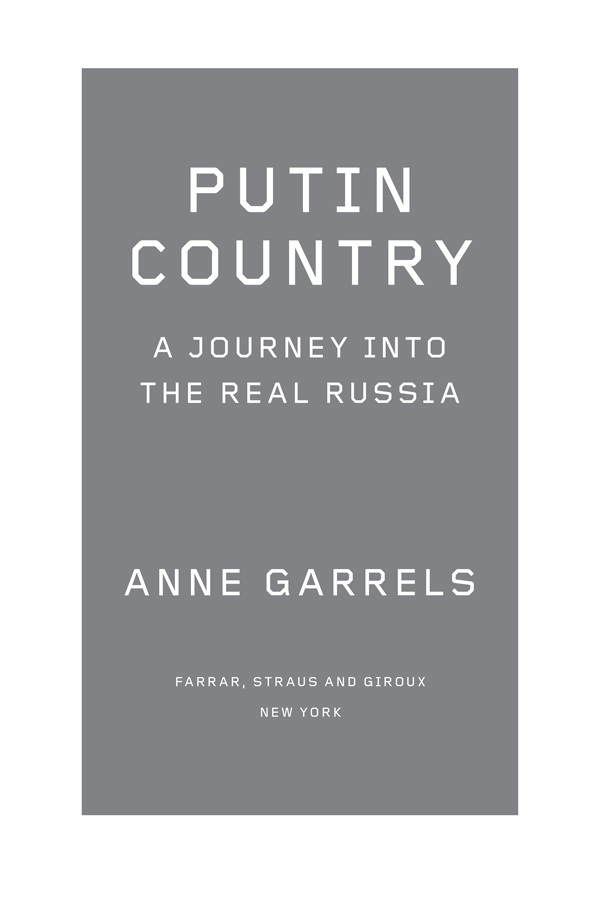
The author and publisher have provided this e-book to you for your personal use only. You may not make this e-book publicly available in any way. Copyright infringement is against the law. If you believe the copy of this e-book you are reading infringes on the authors copyright, please notify the publisher at: us.macmillanusa.com/piracy.
To Vint, as ever with love
On a midwinter morning in 2013, the Russian city of Chelyabinsk was blinded by a white streak in the sky. It lit up the late dawn and arced across the horizon, leaving a trail of smoke. Students at Lyceum 31 pressed their noses to their classroom windows to see the unreal light. Minutes later, there was a huge blast. Solid windows merely shuddered, but across the city panes and TV screens shattered, sending shards flying. Car alarms were triggered, and the roof of a zinc factory partially collapsed. Around twelve hundred people were injured by the hail of debris. Amazingly, no one was killed.
Remarkable images immediately flooded the Internet, recorded by car video cams mounted on dashboards. These are commonly used to record the regions all too frequent traffic accidents and support insurance claims. What they recorded this time was the result of a sixty-foot-wide meteor approaching the earth. It came in undetected at roughly forty-two thousand miles an hourtwelve miles per second. It began to blow apart twenty-eight miles above the Chelyabinsk region, exploding with the energy of about five hundred kilotons of TNT, thirty times the power of the Hiroshima bomb. At its most intense, the fireball glowed thirty times brighter than the sun. Scientists say it was the largest rock to reach our planet since 1908, when another meteor crashed into Siberias Tunguska River.
Fragments rained down all over the countryside, with the largest single piece punching a huge circular hole in the thick ice of Lake Chebarkul, a couple of hours drive from the regional capital. There was no boom there, just a flash of light. Worshippers at the nearby Orthodox church continued with their service. Ice fishermen dozing off on the frozen lake were shocked out of their sodden reverie, but whatever had landed quickly disappeared in the watery depths, leaving only a gaping hole.
Eight months later, divers retrieved a half-ton piece of space rock. It broke into three pieces when it was lifted up. The largest piece now sits benignly under a Plexiglas dome in the regional museum. Compared with the colorful rocks indigenous to the Urals, glistening green malachite and deep purple charoite, the residue of the meteor is a dull lump, with sculpted pits where its molten material chipped off on its extraordinary journey.
The superstitious and the religious tried to find some meaning in this rare event. Wags suggested President Vladimir Putins appointed governor, long the target of corruption allegations, had been fingered for his sins. What everyone agreed was that Chelyabinsk, a gritty industrial region a thousand miles east of Moscow, was again on the map, though for once the troubles were not man-made. Known to be one of the most polluted places on the planet because of a once-secret nuclear accident and choked by clouds of industrial waste, the area had suffered plenty of indignities. But residents looked on this natural event with a kind of pride and awe. Trade in alleged space rock flourished briefly. A local chocolate factory came out with a deluxe Meteor assortment.
Chelyabinsk had been on my radar since 1993, two years after the breakup of the Soviet Union, when a newly independent Russia was struggling for its survival. I had served many stints in the Soviet Union and the new Russia as a journalist and was then NPRs Moscow-based correspondent. As any Russian will tell you, Moscow is not Russia, and in the 1990s it was clear that the countrys richest and most powerful city was racing even further ahead. Moscow is not just the capital and seat of government. It is also the financial, commercial, cultural, and entertainment centerWashington, New York, Chicago, and L.A. all wrapped into one. But most Russian citizens, including the members of many diverse ethnic groups, live elsewhere. Dispersed across a vast landscape, they both admire and resent the Moscow megalopolis. I decided I needed to find a place far beyond the capitals Ring Road where I could follow these citizens of the new Russia as they picked their way through the rubble of a political, ethnic, social, and economic earthquake.
Deciding to focus on one provincial area, I considered any number of towns and regions and finally let fate decide. Lacking a dart, I threw a sharpened pencil at the huge map of Russia in my office. It landed close to the center, making a small rip in a region that, like much of the country, had long been closed to foreigners but had recently opened up to the world. Given my silent pledge to go wherever the pencil point landed, my relationship with the city of Chelyabinsk and the surrounding region of the same name was sealed. I have been going there regularly ever since. It has indeed become my second home.
The size of Austria, and with a population of only three million, the Chelyabinsk region sits on the southern edge of the Ural Mountains. The word mountains is a bit of a misnomer. Worn by the ages, they are now really little more than humps, dividing the western, European part of Russia from Siberia. Far from Moscow and the Pacific alike, people here are proud to live in what they call the backbone of Russia, a place rich in minerals and coal, forests, fields, and lakes. They believe they have supported the country in war and in peace. But the cost has been exorbitant, and the region is still raw from the ravages of history.
That history continues. When thousands of middle-class Muscovites took to the streets in 2010 and 2012 to protest election fraud, corruption, and malfeasance, the rest of the country remained relatively silent. The Moscow-based international press corps made much of the capitals protests but ignored the heartland. In those days, should you have read the Western media, you would have been persuaded the country was on the edge of rebellion.
The foreigners blindness reinforced my determination to continue charting events in the Chelyabinsk region. Like most of Russia, its Putin country, and as I write, it has only become more so. The reasons are many and confused.
Most people unhappily remember what they call the anarchy of the 1990s, when lawlessness and declining living standards followed the collapse of the U.S.S.R. They are eager for stability and a sense of national pride, which they believe President Putin has delivered. They dream of a country worthy of their love and admiration. Many resent the West, which they accuse of hypocrisy and arrogance. Its hard to find anyone who sees an alternative to the status quo; a grudging complacency is more common. The opposition is fractured, anemic, and intimidated.
When I first arrived in 1993, Chelyabinsk was a depressing place, where people were alternately desperate, hopeful, and fearful as changes emanated from Moscow. The entire region had been closed to foreigners since the late 1930s because of its secret military and industrial installations. Now those state-owned, state-controlled behemoths, often employing tens of thousands, were among the Russian institutions most threatened by the emerging market economy. Suddenly the Chelyabinsk region was a part of the world. Sprung free from government subsidies, lacking the structure and orders they needed to be competitive, the areas factories required major revamping and investment. Given domestic chaos and a lack of capital at home, this had to be Western investment, about which they knew nothing. Profit and bankruptcy were the new buzzwords. A whole new vocabulary and set of ideas were gripping the country, and Chelyabinsk, like much of Russia, was ill-prepared.


